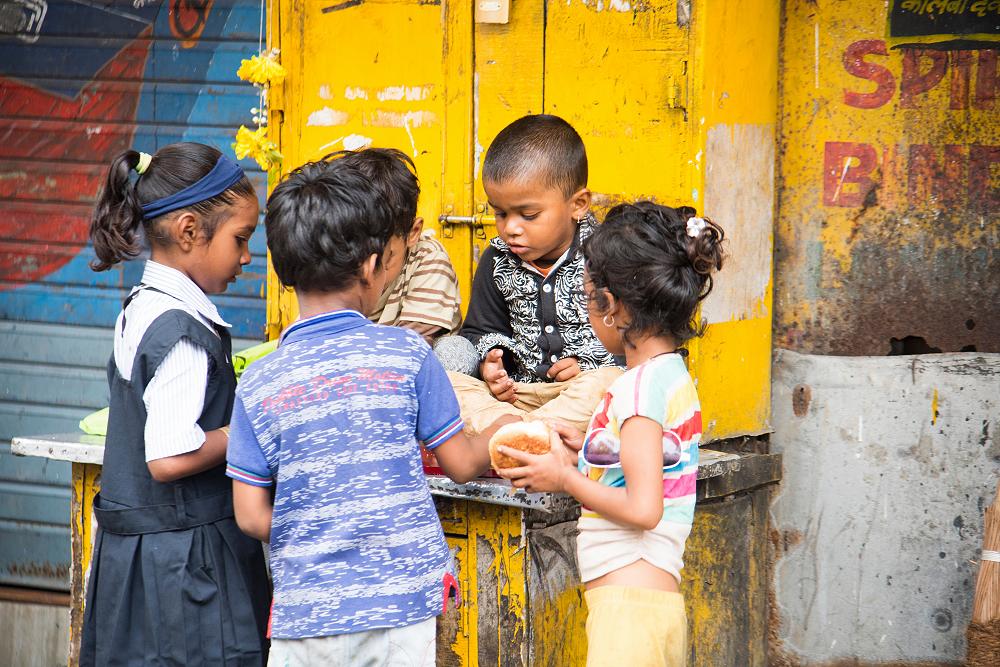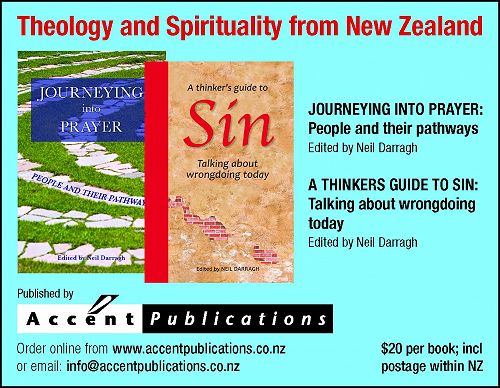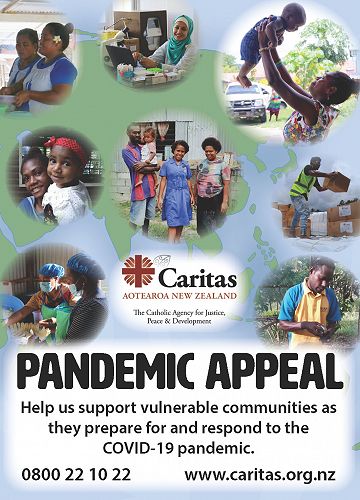
Looking Out and In — May 2020
Long ago, mid-way through Lent this year, the COVID-19 pandemic thrust forward and pushed us all into a new world that was never part of our plan. Many things have changed since the last Tui Motu magazine was published and the shape of how we live in months ahead is still unknown. Our priorities and plans have changed; prayer feels essential and then irrelevant. We find ourselves either too busy or too quiet or not sure what we feel at all.
After India went into COVID-19 lockdown for 21 days, many migrant worker families were thrown into a status of daily food insecurity. I have sat in the homes of many such families — five or eight people living in a square room, with just a jar of rice and plastic bags of kidney beans as food stores. With the lockdown, suddenly, many thousands couldn’t go to work to get cash for tomorrow’s roti and vegetables.
I felt so angry with the poor planning of this lockdown, and the devastating impact on the poor. Yet a disaster, whether natural or human-made is an opportunity for us to reach deep and look for signs of hope. Last week a teammate rang to tell me about some inspiring action from colleagues responding to this need.
Rajni, a lively Hindu 19-year old, lives in a house with plastic tarpaulin for a roof in Brahmanwala, an informal urban community in Dehradun. Rajni already knew Azma and Pinky, young Muslim community health promoters, after they had all followed a youth resilience curriculum together last year. So Azma, Rajni and Pinky discussed how they could help their nearby neighbours who were already running out of food after the start of the lockdown. They allocated responsibilities and started knocking on doors and talking to others in the local neighbourhood. Within three days, they had arranged a daily system of collecting donations of onions, rice and pulses from neighbours. The local gurudwara (Sikh temple) had a large kitchen set up to cook for large groups (the world over, Sikhs are amazing at feeding large crowds) and they were happy to let Azma, Rajni and Pinky, joined by others, to cook there. Together they were able to distribute a cooked meal to 80 people daily. They did this for nearly a week, until Government measures to provide support to migrant workers in slums were put in place.
During a global pandemic where people could instinctively pull apart, especially in an era with growing violence and exclusion towards Muslim community members, this account of collaboration by Hindu, Muslim and Sikh young people gave me great hope in my belly.
In 1999 I was part of a team responding acutely to an earthquake that killed more than 1,000 people in Armenia, Colombia. The people most advantaged by the status quo (ie, neoliberal capitalism) were those most concerned about how to protect themselves from possible looting, rather than sharing food and blankets with people who had lost everything.
Whether we live in New Zealand or India, we all have days when we believe we are doing right for ourselves and our loved ones by saving money for the future, by building fences, by installing security systems or, perhaps, by sending our children to private schools. But this COVID-19 pandemic is strengthening the message we've already been sent by global climate change, a message which is becoming harder and harder to ignore: we can’t wall ourselves away from each other. We are always connected, utterly interdependent.
Rebecca Solnit in her "long read" in The Guardian in early April stated: "When a storm subsides, the air is washed clean of particulate matter that has been obscuring the view, and you can see farther and more sharply than at any other time."She suggests that this pandemic could be an opportunity to recognise there is enough food clothing, shelter, healthcare and education for all, if we share, and that the case for universal health care and a basic income for all is more compelling than ever. Although I don’t know how to make plans for August, let alone 2021, it is not too soon to start looking for chances to shape a new future.
I am inspired by Rajni, Azma and Pinky who saw and responded to a need without seeking permission or deciding that there were others more qualified. We are somehow and strangely, in a quiet time, although the storm of Covid is raging yet. While we wait and watch, the best way forward seems to be to hold tight to hope and step out the door in whatever metaphorical or real way possible, to knock down fences, give away money now, work collaboratively, look out for each other and make resources, ideas and information open source to enhance the lives and survival of all.
Kaaren Mathias is in Christchurch during the pandemic but usually lives on the outskirts of a busy bazaar on steep forested hills about the Gangetic plains of North India. She is a parent, adventurer, public health doctor and follower of Jesus of Galilee.
Tui Motu Magazine. Issue 248 May 2020
Gallery




